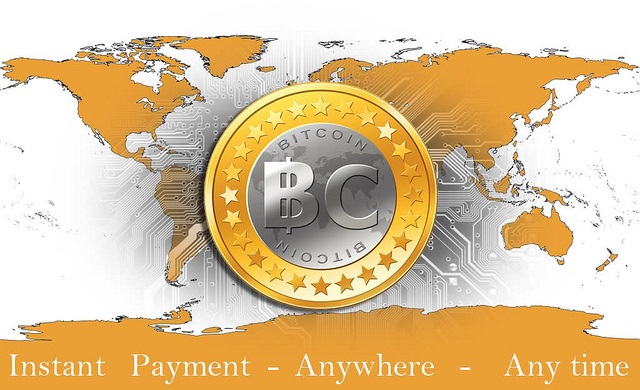The soaring value of Bitcoins and Altcoins has stirred interest afresh among investors. There has been a steady increase in trading volume of Bitcoins in the past two years despite setbacks in the form of Bitcoin heists, SegWit2x, and impending hard fork.

As trading shows a promising shift, there is a big concern among investors over the security of the Bitcoin exchange they opt for. The anonymity that has made Bitcoin popular is also a drawback for users as it provides easy access to hackers. They can easily hack into the Bitcoin funds and change them to fiat currency. The past heists in cryptocurrency history also serve as a warning for developing new and more secure measures.
The Bitcoin heists: A lesson well learnt
From the time Bitcoins increased in value, there have been several heists attempted, with a few of them succeeding on a large scale. Some of the biggest attempts in the last few years have led to cryptocurrency worth millions being stolen. When it comes to Bitcoin exchanges, it is not about if but rather about when the security measures will cease to be effective. Let us look at the numbers:
- Bitfloor and Bitcoinica lost 24,000 and 418,547 Bitcoins respectively in 2012;
- Gox lost a whopping 744,401 Bitcoins in 2014, which is by far the biggest in Bitcoin history;
- Bitstamp lost 19,000 Bitcoins in 2015;
- Bitfinex lost 119,756 coins in 2012.
Besides the above, there are other heists that made the news, such as Pony Botnet, Silk Road, and Sheep Marketplace, that had cost not only millions monetarily but also the faith that users had in the security of the exchanges.
So, what are the measures that are now in place? Let us have a closer look.
How users can ensure security
With cyber-security becoming a top priority for all Bitcoin transactions, the need for multiple security layers for an air-tight safety has gained significance now. Here are some ways in which the users can ensure the security of their cryptocurrency trading.
Two-factor authentication
This is identical to the two-factor Google authentication you use for your Google account. Check your account settings in your Bitcoin service or exchange and have the authentication system set up. During setup, don’t forget to print the QR code provided for scanning with the smartphone app or Google authentication. This will come in handy when your phone is lost or stolen.
Private keys
Wallets form the safe storing area. A wallet has public and private keys combination, in which public key is denoted by the address of Bitcoin. The private keys you have for the wallet give you control over the Bitcoin stash you have.
If there are no private keys with you, you cannot control Bitcoin. This happens when you buy the coins and don’t withdraw the coins from your exchange. The safe way is to withdraw the coins and leave only the coins you intend to sell.
Some measures on added security of private keys include:
- Avoid using online and smartphone wallets for huge amounts;
- Use password encryption for your wallet and make sure you save it, or you might lose the coins forever because you forgot your password;
- If you have an app for managing the passwords, ensure you back up the files.
Bitcoin wallet backup
It is very vital to back up the software of your Bitcoin wallet. Check with the concerned website or developer for three backups on two different media, with one of them placed offsite at a friend’s or relative’s house.
Secure wallets
Opt for secure wallets. You have several options like Ledger Hardware, Trezor and Armory to choose from.
Security measures by exchanges
Exchanges also have their own strong and in-depth safety protocols to ensure users can trade their coins without any risks. Here are a few of them that are in use now:
Multisignature
This security option requires the use of multiple private keys for transaction approval. Many exchanges such as CEX.io, MultiSigna, and Bitstamp had introduced the multisignature format in 2016.
Time locks
This is a revolutionary method to heighten security of transactions in exchanges. You need a particular time frame and two keys for enabling a transaction. In this method, you will use a key for initiation of the transaction and the second one after 24 hours for completing it. If you don’t use the other key, reversal of transaction occurs, so hackers cannot withdraw Bitcoins illicitly.
Payment channels
Instead of the exchanges handling the Bitcoins, they can turn into a payment or route channel between users without any access to the funds held by them. Customers can thus withdraw their Bitcoins any time they want as they retain control over the coins, even if hacking occurs at the exchange. Although this requires users to do a sign-off over the transactions, they would still be done off the blockchain just as it happens in exchanges that are centralized. However, this can be expensive for the exchange, as it has to spend on opening up the channels for payment and any security breach will cost significant expense for the exchange.
Decentralization
Decentralization is not yet regulated, but it is a robust security option where Bitcoins are not held by any company. So, there will not be any weak points of the breach. However, this method is not fully developed and accepted as there are some hitches like slow transfers, low trading limitations, and the absence of advanced strategies for trading.
Conclusion
With Bitcoin value not showing any noticeable slump and instead indicating a steady rise, it becomes more important than ever for increasing security in handling the Bitcoins and the various flourishing altcoins. Despite the most meticulous security measures, Bitcoin does face the threat of hacking due to its digital structure. Exchanges and wallet services are aiming to introduce more robust security measures to replace the present barriers to entry system. And there is always room for stronger measures if the entire community collaborates, just as it did to create the CCSS (Cryptocurrency Security Standard) daft in 2015.

 Hot Features
Hot Features













